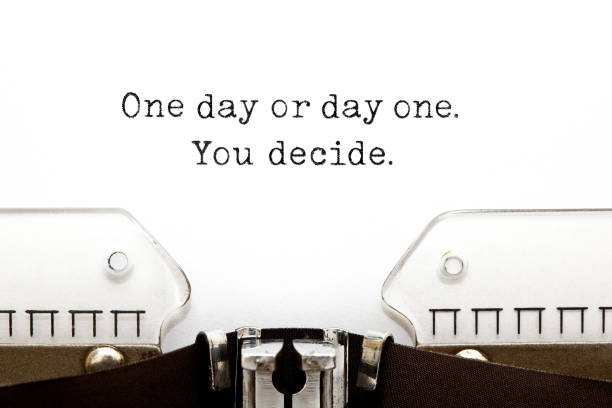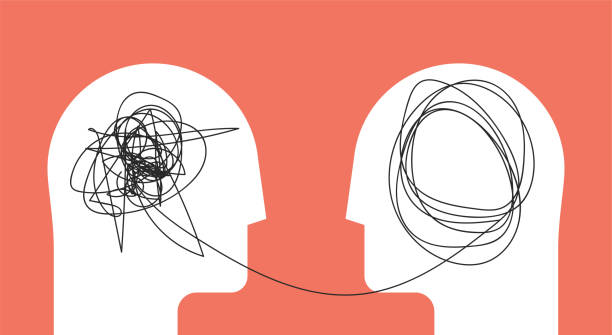If you want a quality, act as if you already had it.
Try the “as if” technique.
—WILLIAM JAMES
Changing one's behavior is difficult. We are creatures of habit, and research only serves to confirm this. If it were simple to improve our behavior—to avoid doing things that are terrible for us and start doing things that are healthier for us—we may not be a country where obesity is a public health problem, millions of people suffer from alcohol and nicotine addiction, self-help books dominate best-seller lists, and magazines feature “how to” lists for all.
Mindfulness meditation is a technique for gaining a better understanding of the barriers that prevent you from improving your behavior. Many challenges can be subconsciously encoded as habitual thought, feeling, and response patterns.
Mindfulness will help you become more mindful of these trends so you can choose different options and make changes. The art of living more mindfully, on the other hand, necessitates concentration and effort; like virtually every talent, it necessitates repetition before skillfulness is attained.
THE RESEARCH

What would it take for us to change our ways? It takes initiative to modify habits or develop a new ability and automatic behaviors or behavioral habits are difficult to break. When we can do things on autopilot, our brains reduce the amount of attentional work we put into it.
Automatic processes, like well-learned abilities, demand no guided brain capacity to succeed, so it's no surprise if we don't remain present when brushing our teeth, showering, getting ready, and going through the many rituals we've incorporated into our days. Similarly, we don't need to pay attention to our breathing in order for our bodies to breathe. To put it another way, our brains don't need us to spend much resources in order to complete repetitive tasks, so why should we?
This topic alluded to a key aspect of mindfulness practice: examining mental behaviors or routines. Since most of us are unaware of how many routines we have, recognizing them is an important first step toward practicing mindfulness. You will start to note how often you operate on automatic pilot by putting it to the test—for example, don't wear a watch, cook with a different burner on your stove, or take a different path to work.
And if it takes effort to discover your patterns, you will begin to live a little more mindfully right away. If you want to incorporate a systematic mindfulness exercise into your daily routine, the science of behavioral modification will assist you.
Behavior Change's Four Ingredients

While there is a vast body of science about how to improve behavior, putting it into practice seems to be a challenge: people nevertheless want to change their behavior permanently. How difficult is it? Steven Levitt and Stephen Dubner describe a textbook example to highlight the argument in their book Freakonomics: medical workers workers and the basic act of hand-washing.
You'd think that hand-washing would be a no-brainer, particularly with, to, people dying each year as a result of hospital errors, with bacterial infections being one of the leading causes of death. Doctors—our pioneers in medical care—recorded washing their hands % of the time in one study reported by Levitt and Dubner. When viewed on concealed camera, however, they were only found to do so a small percentage of the time.
Administrators at Cedars-Sinai Hospital in Los Angeles found it a top priority to improve medical staff's hand-cleaning behavior from an average of percent to near to percent, and they were successful. What went for you? Once you've completed all four of these stages, you'll be able to:
. Simple steps to follow: Hand sanitizers were strategically placed around the hospital to make hand washing smoother and more available. A welcoming environment: A incentive scheme was developed with gifts such as $ Starbuck's gift cards for being caught in the act of hand-cleaning. Doctors were asked to place their hands on petri dishes to culture the (invisible to the naked eye) bacterial colonies that were thriving there, and then photographic representations were projected on screen savers throughout the facility.
The vibrant bacterial colonies served as a strong motivator. These three moves increased hand-washing to about a hundred percent. Then it became a routine as a result of repetition.
If you're trying to lose weight, get in shape, quit smoking, or apply mindfulness to your life, these four steps seem to be important.
Simple Procedures
Baby measures are important in behavioral modification, according to the available scientific evidence. You wouldn't attempt to perform a Mozart sonata without first mastering scales. When you're still cramped for time, adding something different to your everyday routine might sound daunting. This is probably the most compelling argument to begin tiny, with five to ten minutes a day, and gradually increase.
Maintain a manageable mindfulness routine and assist yourself along the way. Weight reduction is easier to do when you slow down your diet by putting your fork down between bites, taking breaks after a meal, or consume fruit for dessert, according to research.
Setting small, attainable milestones allows you to accomplish mini-successes, and keeps you on track to achieve long-term goals like a specific weight loss or integrating mindfulness into a regular routine.
A Comfortable Setting
A new experience will help people improve their habits. David Heber specializes in helping people lose weight. One of the keys to his patients' weight loss performance is their knowledge of the environments that influence their eating habits. Knowing what to eat (how to diet) is insufficient if the environment in which you live is hostile to your food habits. His patients' first step is to determine the "ABCs" of their uncontrollable eating: Antecedents, Behavior, and Consequences. Antecedents are the incidents that arise shortly preceding and are attributed to a behavior like uncontrollable feeding, such as depression and raiding the refrigerator, or a mid-morning sugar binge after a morning latte without breakfast. Heber provides an explanation of the ABCs in his book The L.A. Shape Diet: An antecedent is upset feelings, an action is enjoying chocolate ice cream, and a result is feeling better.
Understanding the ABCs of eating habits is the first move in creating new routines that promote weight reduction rather than uncontrolled eating. Similarly, just as influencing the world surrounding food is crucial to losing weight, developing the best atmosphere to sustain a mindfulness exercise is crucial to its effectiveness.
Heber's weight loss regimen is an example of modifying the climate to create new behavioral habits. “Avoid those who blame you for being overweight,” he advises, “and check out others who will compliment you when you lose weight.” Similar social reinforcement will aid in the development of a mindfulness habit. Take note of what happens when you're sleepy, for example (the antecedent). You become distracted from yourself (the consequence) after you begin watching television (the behaviour). Finding the ABCs of mindfulness can help you sustain it by raising your consciousness and assisting you in creating new habits, such as meditating first thing in the morning before turning on the television or computer and noticing a positive feeling as a result.
And, as Heber says for weight loss, meeting those who value you while excluding others who are dismissive or verbally disrespectful of mindfulness or meditation will help you stay motivated.
Inspiration
Motivation is needed for behavioral improvement. While starting a new regimen, whether it's exercise, preparing for the bar exam, or exploring mindfulness, you may be extremely inspired at first; it's normal to have initial encounters that are so novel and out of the norm that they're strongly reinforcing. Meditation, like all other talents, waxes and wanes with its direct reviews over time. People are also discouraged from continuing because they need to do exercises in physical training or play scales to learn music. Similarly, several people begin to meditate but soon abandon it as their interest wanes as the excitement wears off. You should do such things to hold your motivation up before it switches from extrinsically to intrinsically satisfying to counteract this inherent urge to lose motivation.
Again, we should learn from Heber's popular weight reduction plans, which recommend using "self-talk" as a means of sticking to a goal. Self-talk is a voice within your head that guides you toward your goal and away from distractions. Telling yourself how many hours on the treadmill it would take to burn off an ice cream sundae, for example, or practicing saying "No, no, no" when given a sundae are also examples of self-talk to stop consuming an ice cream sundae.
One of my friends once told me that it takes her 45 minutes of deliberation to get three minutes of meditation. Most of us have inner voices that are constantly deliberating, particularly when we are trying to add something different to our lives or improve our behavior. When your inner voice wants to persuade you not to start practicing mindfulness, speak to yourself about the science behind its wellness effects, the “yes, yes, yes” of its effect on your happiness, and its comparatively short length.
Repetition is essential.
Repetition is needed to form a new habit. Some talents are more difficult to master than others, and our learning abilities vary. Consider picking up a musical instrument and learning to play it. How long do you think learning to play the harmonica will take you? Is it only a hundred hours?
According to science, you can get pretty good at playing the harmonica with only fifty hours of practice; if you stay home from work for a week and devote your days to harmonica practice, you might be able to play a Dylan song by the end of the week. Some instruments, on the other hand, are more difficult to learn: It takes about hours to get pretty good at the piano, and hours to get pretty good at the violin. How long do you believe it takes to become a professional meditator? How about a hundred? How about a thousand? 5,000 dollars?
According to one report, as little as twenty minutes of meditation a day for five days can result in improvements in focus. However, findings suggest that the health advantages and impact on well-being improve as the number of hours practiced increases. Indeed, lifetime meditation students who have logged more than nineteen thousand hours of practice show some of the most striking brain improvements. Yet, as shown by accounts of imaginative flashes or near-death encounters, profound shifts in consciousness may occur in a millisecond.
The truth is that no one knows how long mindfulness exercise takes to produce positive results. Shift occurs as a result of repeated practice, just as it does in any other talent. So, start tiny, keep it easy, and practice.




